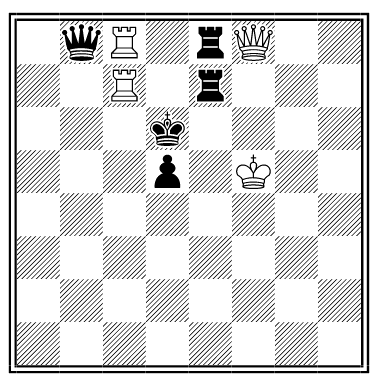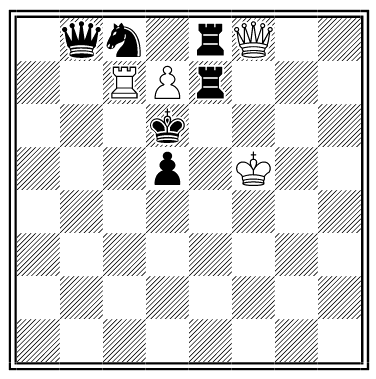Said the chemist, “I’ll take some dimethyloximidomesoralamide
And I’ll add just a dash of dimethylamidoazobensaldehyde;
But if these won’t mix,
I’ll just have to fix
Up a big dose of trisodiumpholoroglucintricarboxycide.”
Author: Greg Ross
The Vision Thing
Mr. Evelyn mentions a Dutch boy, eight or nine years old, who was carried about by his parents as a show. He had about the iris of one eye the words Deus meus, and about the other Eloihim, in the Hebrew characters. How this was done by artifice none could imagine, and his parents affirmed he was born so.
— Sketches of Imposture, Deception, and Credulity, 1845
Good Boy

In 1924, university professor Hidesamuro Ueno brought his dog, Hachiko, to Tokyo. Every morning Hachiko saw his master off at the front door, and every evening he greeted him at the nearby train station.
The professor died in May 1925, but the faithful dog still went to the station every day to wait for him.
He kept this up for 10 years.
The dog became a national sensation in 1932, when this story was published, and he’s since been the subject of books and movies. Today a bronze statue stands at Shibuya Station, where he kept his vigil.
A Growing Family
The Rev. Ralph William Lyonel Tollemache-Tollemache (1826–1895) got a bit carried away in naming his children:
- Sir Lyonel Felix Carteret Eugene Tollemache
- Florence Caroline Artemesia
- Evelyne Clementina Wentworth Cornelia Maude
- Granville Grey Marchmont Manners Plantagenet
- Marchmont Murray Grasett Reginald Tollemache
- Dora Viola
- Mabel Helmingham Ethel Huntingtower Beatrice Blazonberrie Evangeline Vise de Lou de Orellana Plantagenet Toedmag Saxon
- Lyonesse Matilda Dora Ida Agnes Ernestine Curson Paulet Wilbraham Joyce Eugénie Bentley Saxonia Dysart Plantagenet
- Lyulph Ydwallo Odin Nestor Egbert Lyonel Toedmag Hugh Erchenwyne Saxon Esa Cromwell Orma Nevill Dysart Plantagenet
- Lyona Decima Veroica Esyth Undine Cyssa Hylda Rowena Adela Thyra Ursuala Ysabel Blanche Lelias Dysart Plantagenet
- Leo Quintus Tollemache-Tollemache de Orellana Plantagenet
- Lyonella Fredegunda Cuthberga Ethelswytha Ideth Ysabel Grace Monica de Orellana Plantagenet
- Lyonetta Edith Regina Valentine Myra Polwarth Avelina Phillipa Violantha de Orellana Plantagenet
- Leone Sextus Denys Oswolf Fraudatifilius Tollemache-Tollemache de Orellana Plantagenet
- Lyunulph Cospatrick Bruce Berkeley Jermyn Tullibardine Petersham de Orellana Dysart Plantagenet
Lyulph’s name forms an acronym, LYONEL THE SECOND. In Finnegans Wake, Joyce parodied this with Helmingham Erchenwyne Rutter Egbert Crumwall Odin Maximus Esme Saxon Esa Vercingetorix Ethelwulf Rupprecht Ydwalla Bentley Osmund Dysart Yggdrasselmann — whose initials spell HERE COMES EVERYBODY.
Kavka’s Toxin Puzzle
I’ll give you a million dollars if you intend to drink this poison.
You don’t actually have to drink it. I’ll pay you immediately, and then you’re perfectly free to change your mind.
Can you do this?
(Posed by University of California political philosopher Gregory Kavka.)
Bad Fortune

On the first anniversary of the 9/11 attacks, the winning numbers in the New York lottery were 9-1-1.
In a Word
mislive
v. to lead a wicked life
“Odd or Even”
Suppose that a person take an even number of coins or counters, or any such in one hand, and an odd number in the other, there is a simple method by which to tell in which hand the even number is. Ask the person to multiply the number in the right hand by an odd number, and the number in the left hand by an even number; then tell the person to add the two products together and tell you if the sum total be odd or even. If the sum be even, the even number is in the right hand, and if it be odd the even number is in the left hand.
— Miscellaneous Notes and Queries, January 1892
King, Queen, Knave

Vladimir Nabokov composed chess problems. Here’s a clever one from 1932: “White retracts its last move and mates in one.”
This is an instance of retrograde analysis: Of the many legal moves that White might just have made, only one can be revised to yield an immediate mate. Can you find it?
“Lifting Experiment”

In his diary, Samuel Pepys tells of an odd feat performed by four little girls, who put “each one finger only to a boy that lay flat upon his back on the ground, as if he was dead: [at a signal] they did with their four fingers raise this boy as high as they could reach.” Pepys calls this “one of the strangest things I ever heard” but affirms that his friend Brisband witnessed it and saw the feat repeated on Sir G. Carteret’s cook, “who is very big.”
Strangely, I’ve found two other mentions of this. In Milledulcia (1857), his collection of selections from Notes and Queries, Robert Conger Pell notes that “a living man, lying on a bench, extended as a corpse, can be lifted with ease by the forefingers of two persons standing on each side, provided the lifters inhale at the moment the effort is being made.” “The inhalation of the lifters the moment the effort is made is doubtless essential.”
And in his Letters on Natural Magic (1883), David Brewster tells of an experiment in which “a heavy man is raised with the greatest facility, when he is lifted up the instant that his own lungs and those of the persons who raise him are inflated with air”:
The heaviest person in the party lies down upon two chairs, his legs being supported by the one and his back by the other. Four persons, one at each leg, and one at each shoulder, then try to raise him, and they find his dead weight to be very great, from the difficulty they experience in supporting him. When he is replaced in the chair, each of the four persons takes hold of the body as before, and the person to be lifted gives two signals by clapping his hands. At the first signal he himself and the four lifters begin to draw a long and full breath, and when the inhalation is completed, or the lungs filled, the second signal is given, for raising the person from the chair. To his own surprise and that of his bearers, he rises with the greatest facility, as if he were no heavier than a feather.
“As you have repeatedly seen this experiment, and have performed the part both of the load and of the bearer, you can testify how remarkable the effects appear to all parties, and how complete is the conviction, either that the load has been lightened, or the bearer strengthened by the prescribed process.”
I haven’t tried this myself, and for all I know it’s a joke or a stunt, but the accounts of Pepys and Brewster appear earnest and independent, and it seems unlikely that young girls could (or would) master a sophisticated illusion. I offer it here for whatever it’s worth.

